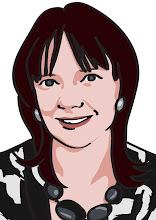
Through asana (posture & movement with breath) we develop sensitivity of body awareness; training the body to develop and extend its consciousness and allow the mind to drop into this expandedness.
Simple movement to begin; mountain standing posture and raising & lowering the arms with the in and out breath . Movement originates in the core (hara) and extends to the periphery.
A core sequence of postures develop emotional and physical core stability:
- down dog
- standing forward bend
- warrior I
- tree
- seated forward bend
Working up through these, with guidance from a trained teacher, until we can hold them for 3-5 mins. Thus through the body, we strengthen the ego.
Each movement sequence into and out of the posture is an art. Moving mindfully; teasing fascia, encouraging muscles, tendons and bone, we extend into the body. And the breath expands into every nerve and cell in the body .
We feel the extension into the limits of our skin and feel the brain of the skin connect to the brain of the gut (enteric nervous system ) . The body brain sing to the Cranial brain a sweet, sweet harmony. Our nerves tingling and alive with energy; energy flowing freely.
By extending ourselves physically and emotionally in these postures, we open our nerves and brain pathways to new ways of being. Extension is freedom; and in this freedom we can deeply release and relax.
Simple movement to begin; mountain standing posture and raising & lowering the arms with the in and out breath . Movement originates in the core (hara) and extends to the periphery.
A core sequence of postures develop emotional and physical core stability:
- down dog
- standing forward bend
- warrior I
- tree
- seated forward bend
Working up through these, with guidance from a trained teacher, until we can hold them for 3-5 mins. Thus through the body, we strengthen the ego.
Each movement sequence into and out of the posture is an art. Moving mindfully; teasing fascia, encouraging muscles, tendons and bone, we extend into the body. And the breath expands into every nerve and cell in the body .
We feel the extension into the limits of our skin and feel the brain of the skin connect to the brain of the gut (enteric nervous system ) . The body brain sing to the Cranial brain a sweet, sweet harmony. Our nerves tingling and alive with energy; energy flowing freely.
By extending ourselves physically and emotionally in these postures, we open our nerves and brain pathways to new ways of being. Extension is freedom; and in this freedom we can deeply release and relax.













